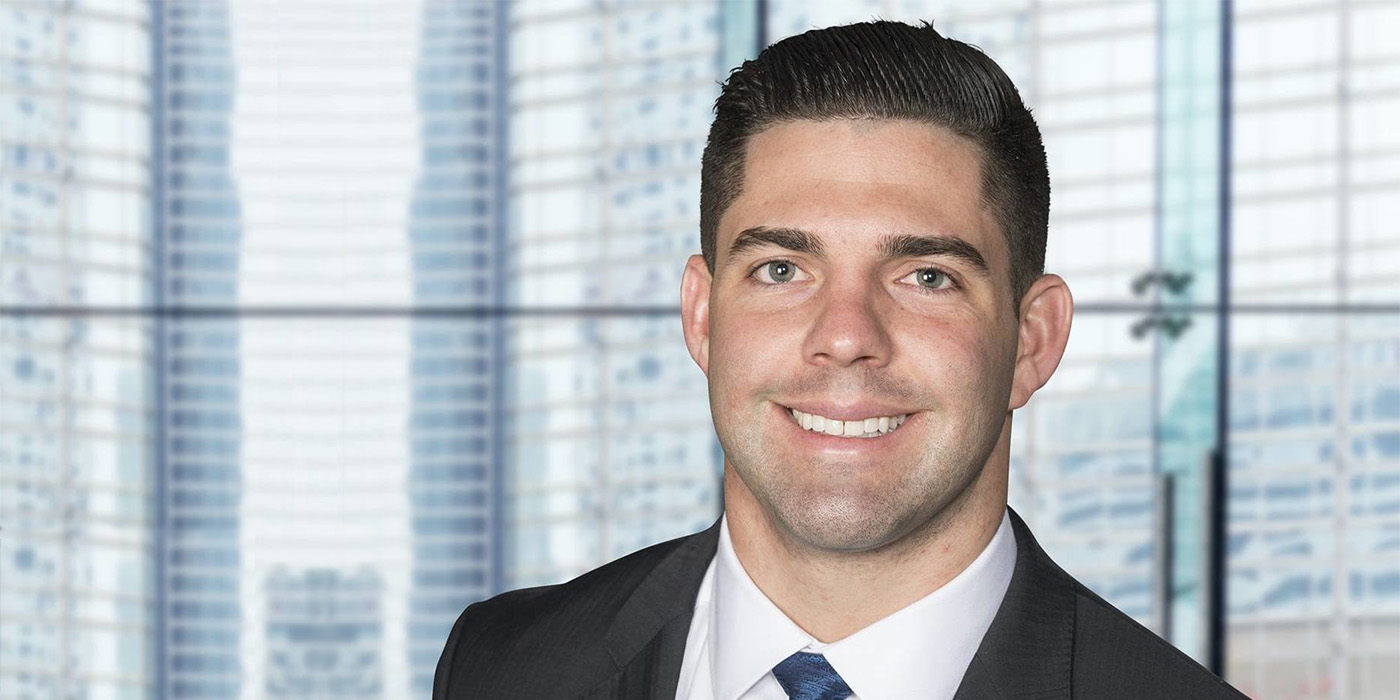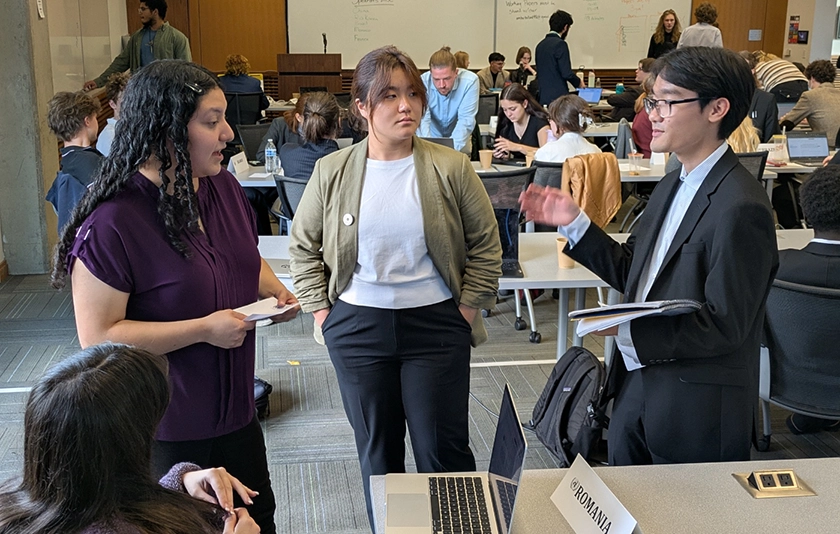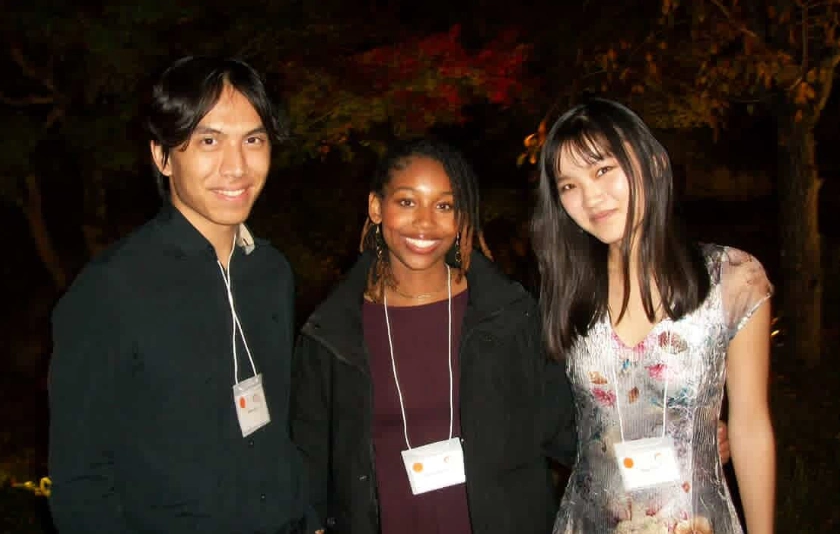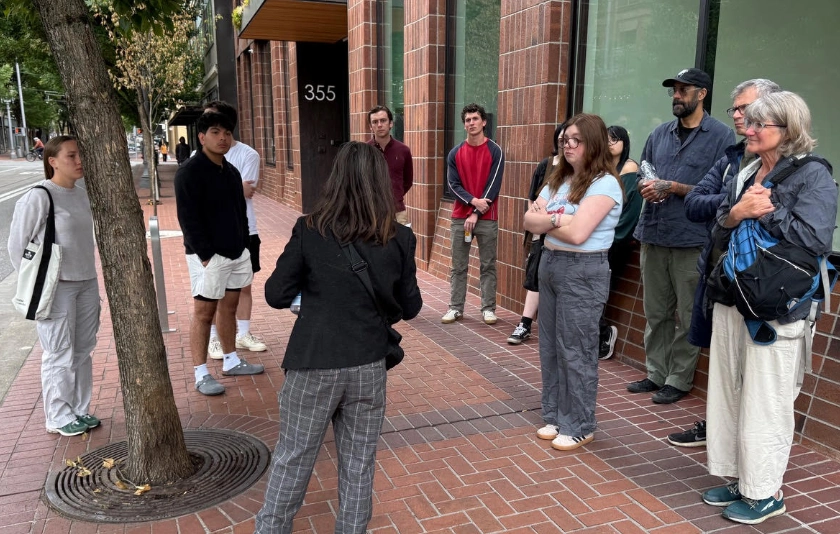Football was Scott Perlin’s life. He played the sport in high school, all four years at Willamette University and even in Finland after he graduated. Only a law career could match that high.
Representing clients during business litigation may not scream adrenaline rush, but Perlin ’12 said being in the courtroom is the closest he can get professionally to being on the field. The whole reason he wanted to be a trial attorney and be inside the courtroom is because he feels that environment is the most similar to the one in competitive sports, he said.
“You’re competing against someone else on behalf of your clients, similar to wanting to perform on behalf of your teammates, as is the case in team sports,” he said. “There are also numerous moments during a case where you need to perform, whether it’s a hearing or at a trial, and to be successful you have to put in a ton of practice and preparation first.”
Applying that sports mentality to law paid off: After about five years as an associate at Seltzer Caplan McMahon Vitek, one of the larger firms in his hometown of San Diego, Perlin became a partner in December. The first-generation graduate is the youngest partner in firm memory.
A career, a promise and a car
The first time Perlin considered becoming a lawyer was at age 11, watching the TV show “Boston Legal” with his dad.
As much as he loved football, he realized he probably wasn’t going to land in the NFL. One night after the show, he got out of bed and announced his decision.
“My dad has been in the car business my whole life, and I love cars, so when I told him that I was going to be a lawyer when I grew up, he said, ‘OK, how about this — if you get into law school, I’ll get you any car you want,’” Perlin said. “I think he thought I was sleepwalking or something, so I asked him to shake on it.”
Choosing where to attend college was easy. Two football players he admired from his high school attended Willamette to play under former head coach Mark Speckman, so he followed, knowing he could balance sports with a political science major that would prepare him for law school.
One academic experience served him well later on, and a bit unexpectedly: a class on women’s rights he’d taken to fulfill a political science requirement.
For the final project, Professor of History, Humanities and Public Health Sammy Basu asked the class to prepare a thesis and then create a presentation on any topic related to the course, subject to his approval. When Perlin met with Basu, the professor said he already had the perfect topic for him: an analysis of the issue of misandry (the opposite of misogyny.)
At first, Perlin flat-out refused. He felt his personal characteristics didn’t make for the best for presenting such a topic, but Basu pushed him to overcome his reluctance for a better grade. By forcing him to learn how to argue a position with which he had no experience or familiarity, Perlin learned how to be a better advocate for clients and their unique positions, he said.
Other assignments in that class also honed Perlin’s ability to make arguments and write knowledgeably about new topics, all of which was great practice for the courtroom, he said.
“Basu wouldn’t let me off the hook,” he said. “He forced me to be uncomfortable, and I learned how to be successful while I was uncomfortable.”
Mentorship that made a difference
After Perlin graduated, he participated in football one last time, as a coach and player for a professional team in Finland, before prepping for his LSAT. Then he attended the University of Southern California’s Gould School of Law in Los Angeles — and his dad kept his promise, gifting Perlin a Jeep Rubicon.
Perlin’s first job as a law clerk at SCMV confirmed he’d reached the right place. He ultimately accepted their offer to work there as an associate following the bar exam.
With nearly 50 attorneys at the firm, he knew he’d be learning from a variety of excellent attorneys who could provide the mentorship he needed, including one of SCMV’s primary shareholders and name partner, Reg Vitek.
“In my first year, I was taking depositions, arguing motions in court, and examining witnesses at trial,” he said. “By my fifth year, I had done six or seven trials, in large part because of the early trial experience I received from Vitek and the comfort that gave other attorneys at the firm to add me to their trial team.”
Vitek’s guidance opened doors for him. The first case Perlin first-chaired led to a victory for a nonprofit — the beneficiary of a trust that had been swindled by a conniving caretaker — and now he’s working on a longtime dispute over the trust of the late billionaire Conrad Prebys, as well as taking on his new responsibilities as partner.
Mentorship may be in Perlin’s future, too. For now, he’s happy to continue growing in his field.
“You’re never going to know everything there is to know about the legal field — there will always be new laws and you’re never going to have an easy case, as you’re often competing against some of the smartest, most competitive people out there,” he said. “But that’s one of the things I like most about it. There is no real ceiling to me, and there are no easy days. You have to keep your edge.”



